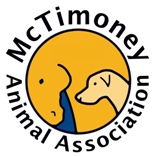What Should You Expect From A Visit?
|
|
| Carrot stretch to encourage dorsoflexion of the spine |
The initial consultation for a horse or pony usually lasts around one hour, follow up treatments last
around 30 to 45 minutes. For dogs the initial consultation will last approximately 30 to 45 minutes, follow up
treaments last approximately 20 to 30 minutes. Below is a summary of a typical consultation:
1.
Case History.
Details of your animal such as age, breed, work regimes, living arrangements,
past problems/accidents/operations, medication, recent behavioural changes or difficulties are all recorded to build up a
full picture of any issues that may be affecting your animal. The case history allows Jo to determine which treatment
techniques will best suit your animal's needs and if there are any areas where treatment may be contra-indicated,
and also allow her to determine what might be the cause of the problem.
2. Analysis of Gait and
Conformation.
The conformation and musculature of your horse/dog will be assessed standing and then
you will be asked to demonstrate your horse/dog walking and trotting. In some instances you may be asked to
lunge and/or ride your horse.
The purpose of this is to identify any conformational issues that may be causing
your animal discomfort, indentify abnormal movement patterns that may be a symptom of discomfort and to provide a "bench-mark"
to compare with in the future.
3. Palpation.
The alignment of your animal's
spine and pelvis is assessed by feeling over the body from the base of the skull right through to the root of the tail.
All of the main muscle groups are then felt to assess the tone and any muscle spasm identified.
The purpose of
this is to pinpoint problem areas that can then be targeted for effective treatment.
4. Treatment.
McTimoney Animal Manipulation is used to re-align and "un-lock" the vertebrae and pelvis. This
is done using the hands via rapid, accurate adjustments and is more gentle compared to other manipulation methods
but equally, if not more effective, as it is readily accepted by most animlas.
Merishia Animal Massage and stretching
techniques are then used to help relieve any remaining muscle soreness/tension/spasm and also helps to relax the animal.
In some instances the Equissage massage machine may also be used to increase circulation and reduce muscle tension.
In the case of horses, the fit of saddles, tack and other equipment may be assessed if it is thought to
be causing a problem.
5. Aftercare Program.
You will be given advice on how
to care for your animal over the days immediately after the treatment. This may include rest and/or limited exercise
and may include repeat treatments.
To gain long term health and to get the maximum benefit from the treatment
you will also be given optional exercises and stretches that you can do at home to help your animal. The main aim of
treatment is to eliminate the cause of discomfort as well as the effects. For this reason you will also be given
advice on the fit or apporopriateness of any equipment or training methods you use for your horse/dog and you may be referred
to another professional for more specific advice e.g. saddler/farrier/behavourist.
It is a legal requirement that any therapist must have the consent
of your animal's vet to provide treatment. Any person treating your animal without your vet's consent is doing
so illegally. This legislation is to protect you and your animal from unqualified people potentially causing your animal
harm.
- Always Check:
Is the therapist properly trained and qualified?
- Jo is trained and fully qualified in McTimoney Animal Manipulation
and Merishia Animal Massage.
Are
they insured?
- Jo is covered
by Holistic Insurance Services.
Are
they registered?
- Jo is currently
registered with The McTimoney Animal Association and is bound by their code of ethics and is required to maintain her level
of expertise by undertaking continuing professional development.
Do they have your vet's consent to treat?
- All of Jo's clients
will be required to verify they have veterinary consent (verbal consent, ie telephone call to your vet is acceptable).


